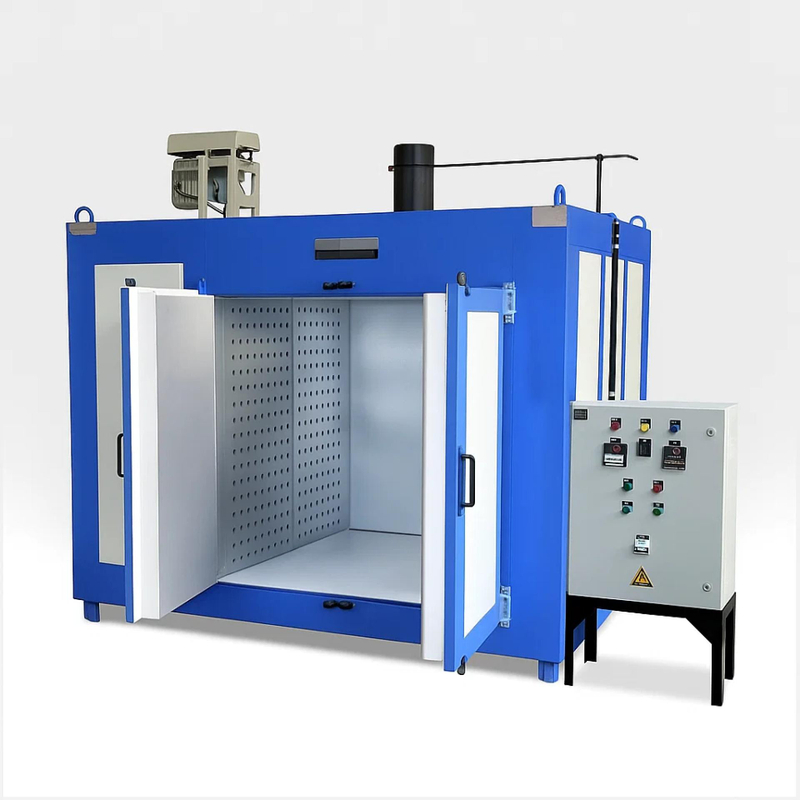Industrial Ovens
Modern manufacturing relies on technological advances that ensure quality, efficiency, and productivity. Among the foundational elements of many manufacturing workflows is the industrial oven—a workhorse behind everything from powder coating and electronics production to food processing and metal treatment. Despite its often background presence, the industrial ovens has undergone significant evolution, harnessing new energy sources, control systems, and intelligent automation to meet the increasingly complex demands of today’s industries.
The Central Role of Industrial Ovens
Industrial ovens, though rarely the main headline in innovation, quietly shape the fate of countless goods. Whether curing high-strength adhesives for aerospace, baking out moisture in electronic components, or perfecting the surface of metal parts in powder coating, these ovens are indispensable. As industries strive for greater performance, lower costs, and environmental responsibility, the choices made in oven technology can determine production quality, operating budgets, and even a company’s compliance with global regulations.
Types and Configurations of Industrial Ovens
Industrial ovens come in many types, each designed to handle specific materials, temperatures, and processes for optimal performance.
- Batch Ovens: Hold entire product batches for thermal processing. Perfect for flexible, low-to-medium volume operations, such as curing paint or drying ceramics.
- Continuous/Conveyor Ovens: Enable production lines to move items through the oven via belts or rollers. Best for high-throughput industries like automotive and electronics assembly.
- Curing Ovens: Specially designed for polymerization and hardening processes—crucial in powder coating, composite materials, and certain adhesives.
- Drying Ovens: Remove moisture from products, commonly used in pharmaceuticals, foods, and construction materials.
- Reflow Ovens: Used specifically in electronics for soldering circuit boards, relying on precise temperature zones.
- Cleanroom Ovens: Built for ultra-clean environments, necessary in semiconductor and medical device manufacturing.
Key Criteria for Oven Selection
Selecting the right industrial oven requires careful evaluation of factors like size, temperature range, energy efficiency, and application needs.
- Application/Process Needs: Begin with the specific manufacturing process—will you be baking, curing, drying, or annealing? Each application demands its own temperature range, airflow, and contamination controls.
- Chamber Size and Configuration: Larger or custom-shaped products require more chamber space or specialized conveyors.
- Temperature Range and Control: Some processes need sharply controlled, high-temperature environments; others benefit from lower, more stable heat.
- Energy Source: Choices usually include direct or indirect gas, electric coil, or even infrared and microwave sources in niche applications.
- Safety and Compliance: Explosion-proofing, emission controls, and safety interlocks are mandatory for hazardous operations.
Engineering for Performance: Insulation, Airflow, Heat Source
A modern industrial oven’s performance is largely dictated by its engineering, from heat distribution and build quality to energy efficiency.
- Insulation: Advanced insulation reduces energy loss, shortens cooling cycles, and improves overall efficiency. New ceramic fibers and multi-layer approaches can cut oven wall losses dramatically, slashing cooling times by up to 87%.
- Airflow: Uniform airflow ensures even temperature distribution and consistent product quality. Adjustable fans and ductwork allow for process optimization and product-specific tuning.
- Heat Source Selection: Electric ovens offer precise control and zero combustion emissions; gas-fired ovens can be more cost-effective at large scale but introduce challenges with emissions and maintenance.
Energy Efficiency and Process Improvement Strategies
Rising energy costs and sustainability demands have placed efficiency firmly in the spotlight. Recent decades have seen a flurry of innovation:
- Superior Insulation Materials: Innovations in insulation directly reduce both energy use and thermal losses.
- Optimized Fan and Blower Design: Adjustable-speed fans bring airflow into closer sync with the process, preventing over/underheating and reducing unnecessary power usage.
- Advanced Temperature Controls: PID controllers, smart feedback loops, and zone-specific heating enable precise tuning, resulting in both better product quality and energy savings.
- Heat Recovery Systems: Capture and reuse exhaust or process heat for pre-heating incoming air, which further reduces operational costs.
- Empirical Process Optimization: Real-world case studies show that fine-tuning basic parameters (fan speed, chamber pressure, cycle time) can shrink energy consumption by 20–30% without compromising throughput or quality.
Industrial Oven Technology with Production and Sustainability Goals
The modern manufacturing environment is fiercely competitive and increasingly regulated. Industrial ovens, once simple heat chambers, are now highly engineered assets at the intersection of production quality, operational efficiency, and environmental stewardship.
When businesses select or upgrade industrial ovens, they must balance short-term needs—throughput, consistency, and quality—with long-term objectives, including energy savings, emissions reduction, and compliance with ever-tightening standards. Strategic investments in advanced technology, whether through high-efficiency insulation, smart controls, or Industry 4.0 connectivity, can deliver significant operational and financial benefits.
Conclusion
Industrial ovens are the hidden drivers behind modern manufacturing, enabling higher productivity, quality, and sustainability. Understanding the types of ovens, core engineering principles, advances in energy efficiency, and the shift toward networked, intelligent systems empowers organizations to make informed decisions that align with both current production demands and the sustainable factories of tomorrow. By embracing innovation in industrial oven technology, manufacturers position themselves for excellence in a rapidly changing industrial landscape.
find the perfect industrial oven for your needs? Contact us today at info@gbmindustries.com or call +91-9996055996!



